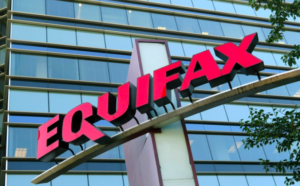
What is Equifax?
Equifax is one of the three main credit reference agencies operating in the UK, alongside Experian and TransUnion. It collates information on your financial behaviour, including your existing and past credit agreements, your history of making repayments on time and any past problems with debt. It uses that information to calculate an overall credit score, which then feeds into lenders' assessments when they are considering your application for credit products.
You can access your Equifax credit score and report direct from Equifax or, alternatively, through ClearScore. The ClearScore service is free and, with 14 million users worldwide, is the most popular way of viewing your Equifax report.
Equifax's key features
- Equifax provides you with an overall credit score, expressed as a number between 0-1000. It also gives you a credit rating between poor and excellent. This gives an indication of your credit worthiness and how likely you are to be accepted for credit products in the future.
- As well as the credit score and rating, Equifax also produces a credit report which shows your existing credit arrangements, as well as those you have had over the previous 6 years.
- The Knowledge Centre gives users information on how the credit score is calculated, as well as on a range of other finance and credit topics, including how to improve your credit score.
- Equifax has adopted the FCA's Vulnerability Framework, which aims to support financially vulnerable individuals. The aim is to support people who have health or financial problems, difficult personal circumstances or problematic life events.
How does Equifax calculate credit scores?
As with other credit reference agencies, Equifax uses information on your past financial behaviour to come up with an overall credit score and rating. This is used by lenders when you apply for a product, such as a mortgage, loan or credit card, alongside other information they will request from you during the application process - most often to do with your employment status and income - to determine how much risk you pose. Your credit score from one or more of the agencies will be part of the process of the lender deciding whether to lend to you and, if so, how much, at what interest rate and over what period of time.
Equifax made changes in April 2021, moving from a credit score range of between 0-700 to one between 0-1000. This puts it more in line with Experian, which has scores between 0-999. It also altered the ratings from "very poor" to "excellent", to "poor" to "excellent", with an additional "very good" level below "excellent". This has the effect of making the Equifax ratings seem more positive, with people who would previously have been deemed as having a rating of "very poor" now classified as "poor", while many will have moved from being "good" to "very good". This is in spite of the fact the information held on them and their actual credit worthiness remaining exactly the same.
It is worth emphasising that the credit score given is unique to Equifax as there is no universal credit score. As each provider comes up with its own credit scoring system, it is necessary to check your individual scores with each of them.
What are the Equifax credit scores/ratings - and what does it mean for consumers?
| Equifax credit score | Equifax credit rating | What does it mean? |
| 0-438 | Poor | You are likely to be rejected for credit products |
| 439-530 | Fair | You may be accepted for some credit products, but may have to pay a higher rate or have a lower credit limit |
| 531-670 | Good | You are likely to be accepted, but could have a lower credit limit |
| 671-810 | Very good | You're likely to be accepted for most credit products |
| 811-1000 | Excellent | You're very likely to be approved for the most competitive credit products |
Is Equifax accurate?
Each credit reference agency has access to different information, so it is unlikely your credit report will be the same with Equifax as it is with Experian or TransUnion. Added to the fact that each company also uses a different scoring system and it is easy to see why many consumers find it confusing and don't know which score to trust.
The short answer to this is, you ideally need to check your credit report with all three agencies, as well as scrutinising them all for any errors that may be dragging down your score. This is important as, as well as Equifax, Experian and TransUnion having access to different financial information, lenders will typically use just one or two of the credit reference agencies, which means you need to know what is contained in each one. If you just check your Equifax report but your chosen lender refers to Experian, for example, you risk being turned down if the credit rating isn't as high as you think it is or if there are mistakes on the Experian report that impact your application.
How much does Equifax cost?
Everyone can access their Equifax credit report and score for free during an initial 30-day trial. After that point, you will be charged £14.95 per month. This fee allows you to view your full report and overall credit score, as well as access 'Equifax WebDetect', a monitoring service that helps protect against identity theft and fraud.
Alternatively, the most popular way to access your Equifax credit score and rating is through ClearScore, which gives you monthly access to your report for free, for life.
Is Equifax safe?
Equifax hit the headlines in September 2017, when it announced that up to 400,000 UK consumers may have had their personal information stolen as part of a global data breach. The incident saw customers' names, addresses, dates of birth and, in some cases, credit card details stolen by hackers. Further security measures were put in place by the organisation, reducing the risk of a similar breach happening again in the future, although there are no guarantees. However, this risk isn't unique to Equifax, with other credit reference agencies and major companies also vulnerable to cyber attacks and hacking.
Conversely, Equifax WebDetect helps protect individuals from having their identity stolen or being victims of other forms of online fraud. There is a wealth of information in the Knowledge Centre on the Equifax website on how to reduce your chances of being a victim of fraud or scams. Equifax itself is also regulated by the Financial Conduct Authority (FCA), meaning it has to adhere to a high standard of professional conduct.
Equifax customer reviews
Reviews on Trustpilot suggest Equifax has some issues with customer service, as well as some individuals experiencing problems with correcting inaccurate information on their reports. Overall, it has been given a score of 3.2 out of 5, based on more than 2,000 reviews, with 63% of reviewers classifying Equifax as "bad", with 37% deeming it as either "excellent", "great" or "average". Recent reviews cite problems with cancelling after the free trial has expired, as well as an inefficient complaints procedure.
Interestingly, ClearScore, which provides access to the Equifax score and report for free, is given a Trustpilot score of 4.4 out of 5, based on over 11,000 reviews. 73% of reviewers classified it as "excellent", with 16% having a "bad" experience.
Pros and cons of Equifax
Here is a summary of the key advantages and disadvantages of using Equifax to check your credit score.
Pros of Equifax
- You can access your credit score and report for free during the 30-day trial period
- Being aware of your credit rating with Equifax will give you a better idea of whether you are likely to be accepted for credit products, reducing the risk of being turned down when you apply for finance
- The Equifax WebDetect service helps protect users from identity theft and fraud
- It does offer services for vulnerable customers, providing support and links to sources of help
Cons of Equifax
- You can access your Equifax credit score and report for free from ClearScore
- It doesn't offer the opportunity to increase your credit score in the same way as Experian's Experian Boost service does
- It doesn't have good customer reviews on Trustpilot, which calls into question its customer service proposition
Alternatives to Equifax
Here are how some alternative credit score checkers stack up against Equifax.
Equifax vs ClearScore
The most obvious alternative to Equifax is ClearScore, a free service that gives you monthly access to your Equifax credit score and report. In addition to its pledge to give access to this information "for free, forever", it also offers free identity protection with ClearScore Protect.
Equifax vs Experian
As the biggest credit reference agency in the UK, Experian has a slicker website and more user-friendly interface than Equifax. It's also the only option that allows users to benefit from a potential increase in their credit score through its Experian Boost offering, which uses open banking to monitors spending and saving habits. Experian's premium service, CreditExpert, is a similar price to Equifax after the initial 30-day trial, with a monthly charge of £14.99.
Equifax vs Checkmyfile
Another way to check your Equifax credit score is to use checkmyfile, a multi-agency credit checking tool. Checkmyfile allows you to see your credit score with all three major credit reference agencies Equifax, Experian and Transunion, as well as lesser know credit reference agency Crediva. While Equifax costs £14.95 per month, checkmyfile charges £14.99 to access every major credit reference agency and it is currently offering a free trial for 30 days. Check out our independent checkmyfile review.
If a link has an * beside it this means that it is an affiliated link. If you go via the link Money to the Masses may receive a small fee which helps keep Money to the Masses free to use. But as you can clearly see this has in no way influenced this independent and balanced review of the product.





